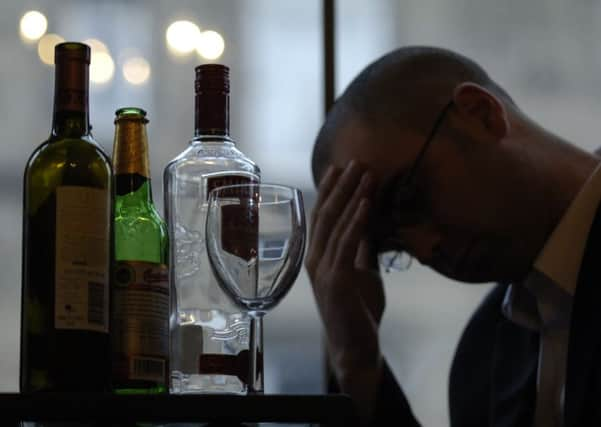Cheap supermarket booze is costing us dear


Supermarkets dedicate a huge amount of shelf space to alcohol – “pile it high, sell it cheap” seems to be their philosophy. While supermarkets are no longer allowed to display alcohol across the store, shoppers still have to walk past the alcohol aisles to get to essentials like bread and milk. These shoppers include children who can’t legally buy alcohol, people who are alcohol dependent and people recovering from alcohol problems.
Given that alcohol is an age-restricted, addictive product that causes a great deal of harm, perhaps it’s time to think about selling it from a completely separate area within a store, as is the case with tobacco products. Other countries go further and have specialist alcohol retailers. In Sweden, for example, the government-owned Systembolaget is the only retail store allowed to sell alcoholic drinks stronger than 3.5 per cent alcohol by volume.
Advertisement
Hide AdAdvertisement
Hide AdSupermarkets claim to be responsible retailers but some of the products they stock suggests otherwise. Who do drinks like Berry Daiquiri pouches or shots of Vodka Mix Strawberries & Cream appeal to? “Responsible drinkers” as the producers and retailers claim – or teenage girls? What about super strength lager and strong white cider? Addiction services say these are typically drunk by our heaviest drinkers, often those in our most deprived communities.
In terms of sales, vodka, not whisky, is Scotland’s national drink. It’s cheap vodka that the Scotch Whisky Association (SWA) is defending by taking the Scottish Government to court over minimum pricing. The majority of the SWA’s members are global producers who make huge profits from drinks other than whisky. It remains to be seen whether the SWA’s legal challenge to minimum pricing – a policy which enjoys widespread public and political support – damages their reputation. In the long-term surely the “iconic” image of Scotch is better served by being on the side of responsible pricing, not in defending cheap vodka and cider?
Politicians across the Scottish Parliament understood the evidence linking price, consumption and harm when they passed minimum unit pricing legislation. It is a targeted measure which will increase the price of the cheapest, strongest, most harmful drinks in corner shops and supermarkets. Pubs will not be affected by minimum pricing as their drinks already cost more than 50p per unit.
While minimum pricing has been delayed, on average 22 Scots have died because of alcohol every single week. It’s people living in our most deprived communities who suffer the most; they are eight times more likely to need hospital treatment and six times more likely to die because of alcohol.
The other tool available to increase the price of alcohol is to increase excise duty. This is not a substitute for minimum unit pricing which is targeted at the cheapest end of the market, but it is an important and complementary measure. Excise duty is reserved to Westminster and it was really disappointing that the Chancellor froze duty on beer, cider and spirits in the recent Budget. This simply doesn’t make sense when there is so much pressure on our NHS and other public services.
Governments have a duty to protect and improve the health of their citizens, and that includes taking action against harmful practices by big business. The Scottish Government is to be applauded for its efforts to implement minimum pricing but by freezing alcohol duty, the UK government has failed to play its part.
l Alison Douglas is chief executive of Alcohol Focus Scotland